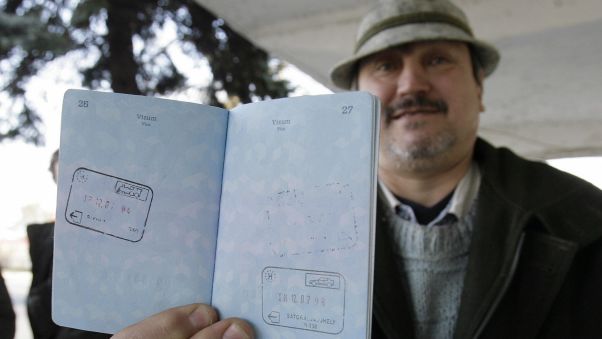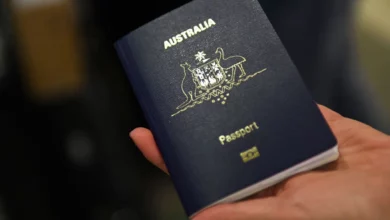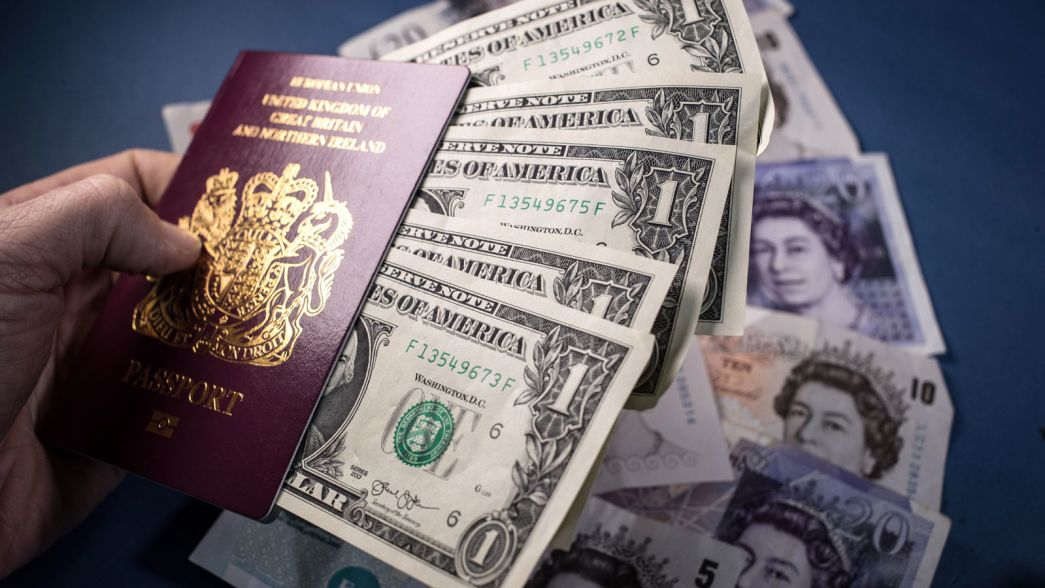
Turns out money doesn’t just buy a glamorous vacation in the Caribbean or a killer suite in Quebec — it can buy residency too.
While British citizens are rushing to claim Irish passports post-Brexit vote, the world’s most elite travelers don’t bother standing in line at immigration counters.
Instead, they enlist in citizenship by investment programs (CIPs), where investing in a country’s economy can grant easy access to more powerful passports.”Generally CIPs draw individuals from countries whose passports offer very limited abilities to travel, such as China, Russia, and Middle Eastern countries,” Nuri Katz, founder of international financial advisory firm Apex Capital Partners, tells CNN Travel.
“Most of the individuals making these types of investments are high net-worth entrepreneurs with net worths of about $2- to $15 million.”

Two-island nation St. Kitts and Nevis introduced its CIP program in 1984.
Apex Capital Partners
London-based Henley & Partners citizenship planning consultancy named Germanythe most desirable passport in the world in its 2017 Visa Restrictions Index thanks to its visa-free entry to 177 countries. For those holding a less coveted passport, CIPs offer an alternative.
The legal framework enables foreigners to acquire door-opening passports by making large financial contributions, usually in infrastructure development or government bonds. The concept began in 1984, when St. Kitts and Nevis — a two-island nation in the Caribbean — introduced the original CIP. The practice became more popular in 2009, when the country began heavily marketing its opportunities.
“The St. Kitts and Nevis program is the oldest in existence, so it is considered to be the platinum standard,” says Katz.
“There are lots of CIPs in the Caribbean, because they simply need the money and don’t have many other resources that they can use to attract foreign direct investment.”
Over the years, such programs have become more standard in developed countries as well — the United States, Canada and the United Kingdom offer versions, as do a few countries in Europe.
“There’s still a small percentage of countries, likely around 15, actively marketing versions of CIPs,” says Katz.
“However, many more countries are considering adopting such programs. For example, Montenegro, Georgia and Kazakhstan are all working on creating programs, and several other countries in the Balkans are considering them.”
How it works
AFP/AFP/AFP/Getty Images
Best passports for unrestricted travel: The 2017 Visa Restrictions Index ranks nations by how freely their citizens can explore the planet. Hungary and Malta tied for 10th this year, with their citizens getting visa-free access to 167 countries.
Today, Katz estimates that roughly 5,000 people each year acquire citizenship abroad through CIPs.Katz himself is one of them. Originally an American citizen, the entrepreneur acquired citizenships in Israel and Canada where he lived for long periods. Later, he obtained a St. Kitts and Nevis citizenship through a real estate investment.
He is also a citizen of Antigua, because he purchased a home — where he now resides with his family.
“I pursued citizenship in Antigua because I found a good school there for my son,” he says.
“When I bought the house, I realized that attaining citizenship was a smarter decision than getting a residence permit that would require constant renewals.”
It might seem easy to shell out the money and stock up on passports, but the rigorous application processes can take months — if not years.
Typically, applicants will undergo thorough financial and criminal evaluations to ensure the money has been earned legally, prior to residency or citizenship being approved. Perhaps unsurprisingly, the US CIP program is among the most difficult to obtain. Applicants must fulfill a five-year residence requirement before being eligible to apply for citizenship — which is not guaranteed.
“All nationalities are eligible for the investor immigration program in the US — most applicants are from China, but many are from Iran, Nigeria, Russia, Mexico and Egypt,” says Katz.
“It can take years for residency to be approved.”
The best passports
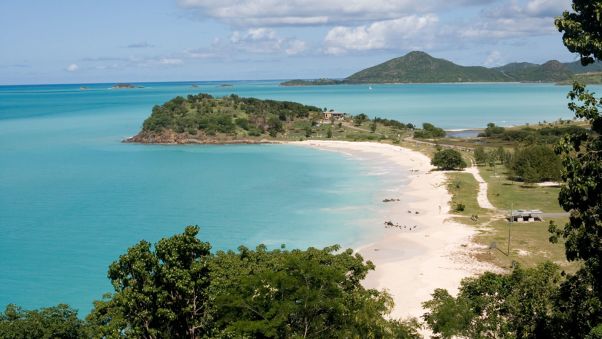
Antigua and Barbuda offer citizenship in exchange for a $200,000 donation to the National Transformation Fund or a real estate purchase of $400,000 plus. Apex Capital Partners
CIPs range from $100,000 in the island of Dominica to a minimum of $2.4 million in Cyprus — and the best passports, in terms of mobility, tend to be the most expensive.
“Cyprus is among the most expensive for a number of reasons. For one, the right to live in Europe is considered to be of high value,” explains Katz.
“Additionally, the investment in Cyprus is in real estate and there is a feeling amongst investors that the Cyprus real estate market is well priced and that investing there can lead to good returns.”
The Mediterranean nation is also prized for its easy access to EU residency, quick processing times and relatively fuss-free documentation.
Other popular passports include Portugal, where the country’s Golden Visa Program provides a two-year residency permit and a fast-track to citizenship, extending the courtesy to immediate family.
The fee? Wannabe residents must purchase real estate valued at a minimum of $419,160 or create 10 jobs in the country.
Meanwhile, countries such as Antigua and Barbuda, in the Caribbean, are cheaper — with just a $200,000 contribution into its National Transformation Fund required. However, there’s an additional $50,000 fee for a family of four.
Why do it?
If you’re already scoping property in Cyprus or Portugal, a CIP is like a two-in-one deal. You’ll walk away with a chunk of ownership in a new five-star resort, as well as a new passport.
There are professional benefits as well. A business traveler with a politically problematic passport might not have time to waste waiting weeks, or months, for expensive visas to be approved. Instead, he or she might feel it’s a worthwhile investment to purchase $600,000 in government bonds in Bulgaria and enjoy seamless travel to 140-plus visa-free countries — in turn making travel significantly more efficient.
“Business travelers need the ability to be highly mobile and not be restricted by requesting visas to all the countries that they need to travel to,” says Katz.
“For example, without ease of travel, a Chinese person who needs to go on business to Paris and London must first go to the French embassy and request a visa, and then to the British embassy to do the same thing.”
Keeping options open
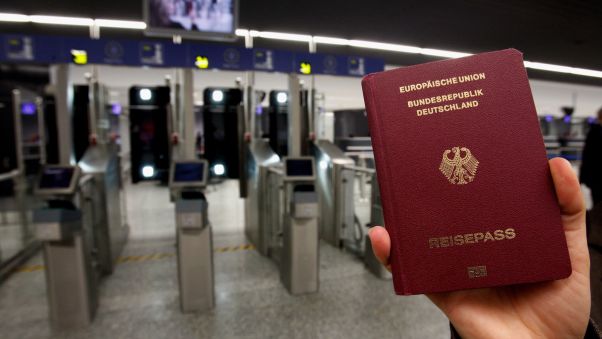
German passports are the most powerful, giving residents access to 177 countries without a visa.
Alex Grimm/Getty Images
For US passport holders, for example, a second passport might come in handy if an American is traveling to an unstable country or desires to live and work in Europe. Americans can hold multiple passports, but if they want to avoid US taxes — or double-taxation, for those living abroad — they must renounce their citizenship.
“Many find it frustrating that America taxes its citizens even if the person lives abroad, making it one of only two countries to do so,” says Katz.
“Taking on an alternate citizenship allows you to give up American citizenship and stop paying taxes.”
Likewise, wealthy families with a restrictive Middle East passport, for example, might choose to invest in a passport from Dominica so they can save time and travel the world more freely. Or they might consider the investment a sort of security blanket — a back-up plan in case of sanctions, war, or natural disasters.
“It’s considered somewhat of an insurance policy among the many high net worth individuals who believe in both financial diversification, as well as diversification in terms of citizenship,” he adds.
“It is something that gives a certain amount of protection against a dark day that could one day occur.”
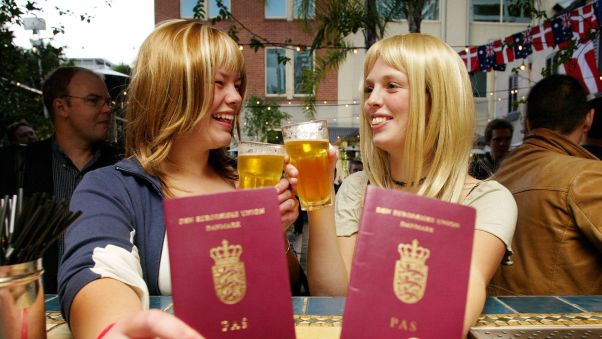
The ultimate status symbol
There are some who simply collect passports like they would any other status symbol, from cars to summer homes.
“It shows that one has reached a certain financial level that allows them to invest in a second citizenship,” says Katz.
“Like buying an expensive car, it serves a purpose but it also shows that one can afford it.”
The only high-net worth group who’s not collecting passports? Billionaires.
“Billionaires usually will have taken care of these issues when they are still ‘simple’ millionaires,” says Katz.
“It is generally something that they start thinking about when they reach a net worth of a million or two.”
The price of CIPs
The upsides of CIPs provide economic support for capital-starved countries and personal perks for investors. But they’re not without controversy.
Kate Hooper, an associate policy analyst at the Washington DC-based think tank Migration Policy Institute’s International Program, says the mixed reception of these programs involves a government’s commitment to tracing income sources.
“The exact due diligence procedures tend not to be publicly disclosed, and numerous reports have raised concerns about how effective these processes actually are at screening people and rooting out dirty money,” says Hooper.
“Over the years, there have been a handful of cases where citizenship has been granted to people without proper screening.”
Another issue, she says, is that CIPs put a clear price on residency rights.
“For example, the optics of selling EU citizenship prompted the EU to oppose Malta’s CIP when it was introduced, only backing down when Malta agreed to add a number of additional conditions on granting citizenship, such as minimum residency requirements.”

Unintended side effects
Some experts also express concern about economic and political side effects. George DeMartino, a professor of international economics and ethics at the University of Denver, suggests CIPs could cause unintended side effects.
“These programs do not ensure a win-win solution to the problem of capital scarcity in poorer countries,” explains DeMartino.
“They are just as apt to represent beggar-thy-neighbor strategies — and this problem is exacerbated when the country with the CIP is relatively wealthy and the investors come from relatively low-income countries,” says DeMartino.
There is also a potentially more serious problem, he says, which involves politics.
“Programs such as these threaten to diminish political fraternity by affording special privileges to the already privileged,” explains DeMartino.
“They permit those with the least need to migrate and achieve citizenship in a new country the greatest opportunity to do so, while those far more desperate to migrate, such as those facing dire economic circumstances at home, are fully excluded from the benefits of these programs. The programs are not the cause of this inequality, but they amplify it.”

